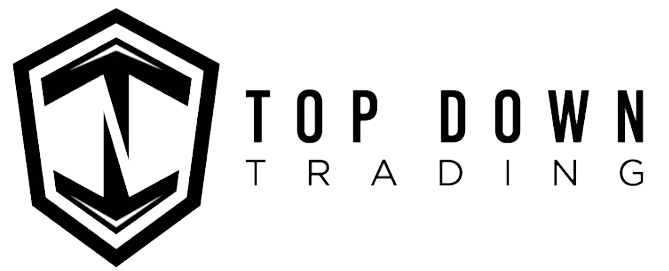What is an online marketplace?
Online marketplaces are online platforms also known as e-commerce platforms. Ecommerce marketplaces are a popular way for international wholesalers or retailers worldwide to sell their products to consumers (B2c) or to another online business (B2B).
These marketplaces offer a convenient and efficient way for online sellers and buyers to connect with one another. By doing so apart from online store owners they also allow third party sellers to reach a larger audience and streamline their operations.
In this article, we will look at some popular online marketplaces and also explore the benefits of selling on online marketplaces, as well as the potential drawbacks and costs.

Online marketplaces
There are a variety of online marketplaces available, each with its own unique features and target audience.
15 Top online marketplaces
Some of the top online marketplaces include Amazon, eBay, Etsy, and Alibaba, which have a vast global market share and offer a wide range of products in various categories.
Facebook Marketplace is another popular online platform, which allows users to purchase products and sell them within their local community.
Other marketplaces, such as Shopify and Walmart, allow retailers to create their own online store by selling online directly to consumers.

Here's a list of 15 top marketplaces for 2023:
-
Amazon
Amazon is the largest and most popular top online marketplace in the world. It offers a wide variety of products, including electronics, clothing, home goods, and more. Amazon also offers a range of services for sellers, including fulfillment by Amazon, which allows retailers to store and ship their products from Amazon's fulfillment centers.
-
eBay
eBay is another well-known online marketplace that allows sellers to list and sell their products to a global audience. It is particularly popular for the sale of collectibles, vintage items, and rare finds.
-
Etsy
Etsy is an online marketplace that focuses on handmade and vintage items, as well as craft supplies. It is a popular destination for artists, crafters, and small business owners looking to sell their unique and creative products.
-
Alibaba
Alibaba is a Chinese online marketplace that allows international sellers to reach a global audience. It is particularly popular for wholesale products like bulk quantities of electronics, clothing, and more.
-
Shopify
Shopify is a popular ecommerce platform that allows retailers to create and run their own online stores. It offers a range of features and tools to help retailers manage their businesses, including inventory management, payment processing, and marketing tools.
-
Walmart
Walmart is a retail giant that has also entered the online marketplace space. It offers a wide variety of products and allows sellers to list their inventory and sell online on its platform to online shoppers.
-
Google Shopping
Google Shopping is a top online marketplace that allows retailers to list products to sell online through Google. It is a convenient way of online shopping for consumers to search for and purchase products online, as it allows them to compare prices and read reviews from other customers.
-
Newegg
Newegg is an online marketplace that specializes in electronics and computer hardware. It is a popular destination for tech-savvy consumers looking for the latest gadgets and devices.
-
Overstock
Overstock is an online marketplace that offers discounted prices on a wide variety of stuff online, including furniture, home goods, and more. It is a popular destination for consumers looking for a good deal.
-
Wayfair
Wayfair is an online marketplace that specializes in home furnishings and decor. It offers a wide selection of products, including furniture, rugs, and more.
-
Zillow
Zillow is an online marketplace for real estate, allowing buyers and sellers to connect and conduct transactions online. It offers a range of tools and resources for buyers and sellers, including home value estimates and property listings.
-
Facebook Marketplace
Facebook Marketplace is a top online marketplace that allows users to list and sell their products on the popular social media platform. It is a convenient way for users to connect with buyers in their local area.
-
OfferUp
OfferUp is a mobile-based online marketplace that allows users to buy and sell a wide variety of products, including furniture, electronics, and more. It is particularly popular for the sale of secondhand items.
-
Letgo
Letgo is another mobile-based online marketplace that allows users to buy and sell a variety of products, including electronics, clothing, and more. It is a convenient way for users to find and purchase items in their local area.
-
Poshmark
Poshmark is an online marketplace that specializes in fashion and clothing. It allows users to buy and sell gently used clothing and accessories, as well as new items from popular brands.

Marketplace Sellers
Advantages:
Reaching a large audience
One major advantage of selling online at established marketplaces is the ability to reach a large audience. These platforms have high rates of customer loyalty and attract millions of shoppers every month, providing sellers with the opportunity to increase brand exposure and reach online shoppers.
Small business retail websites may not have been able to reach a wide audience on their own e commerce website.
However, by selling on multiple marketplaces, sellers can reach more monthly traffic and also sell internationally increasing their sales figures rapidly by reaching a wider audience.
In addition, also new business startup sellers who started selling online can get immediate exposure to millions of online shoppers per month.
Service convenience for online business
In addition to the benefits of increased brand exposure and a larger audience, online marketplaces also offer convenience for small businesses.
Most platforms offer payment processing options like credit cards and PayPal, making it easier for a seller account to receive payment from buyers.
Some marketplaces like Amazon, also offer fulfillment services with a shipping strategy, allowing sellers to store their products at the marketplace's fulfillment centers and have the marketplace handle the packing and shipping of orders.
This can be a convenient option for sellers who don't want to handle fulfillment themselves.
Access to customer data
Marketplaces often provide e-commerce sellers with access to customer data. For example, purchase history, most selling items, and reviews which can be helpful for understanding customer preferences and improving the seller's business.

Costs:
Subscription & Fees
While there are many benefits to selling on online marketplaces, it is important for sellers to consider the costs associated with these platforms. Most marketplace operators charge marketplace fees and subscriptions:
A) a fixed fee per month
B) additional selling fees - final value fee when a product is sold
Online marketplaces reflect these costs to sellers for using their platform, which can be a percentage of the selling price for each sale or a flat rate, or both.
These fees can vary among marketplaces and may include listing fees, selling fees, and additional final value fees for services like fulfillment and marketing.
It is important for sellers to carefully consider these costs and how they will impact their overall profitability.
Drawbacks
In addition to fees, sellers should also consider other potential drawbacks of selling on online marketplaces. Some marketplaces may have strict rules and policies that sellers must follow, and failure to adhere to these rules can result in account suspension or termination.
It can also be challenging for sellers to stand out among the competition on these platforms, as there may be many other sellers offering similar products.
In order to effectively compete on online marketplaces, sellers may need to invest in digital marketing programs and strategies provided by marketplace operators.
In addition, to further expand online sales results marketing options such as search engine optimization (SEO) and pay-per-click (PPC) advertising on Google or retail websites can become a must.
Despite these potential drawbacks, selling on online marketplaces can be a great opportunity for retailers to more sales per month and reach a larger audience to streamline their operations. With the vast array of marketplaces available, there is likely a platform that is a good fit for any seller's needs.
Whether you are looking to sell handcrafted and vintage items, consumer electronics, or clothing, there is an online marketplace that can help you connect with buyers and grow your e-commerce site business.
However, it is important for sellers to carefully consider the fees and potential drawbacks of selling on these platforms and determine which marketplace is the best fit for their business.

Which online marketplaces are the best fit for your business?
Target Audience
One way for retailers to determine which online marketplace is the best fit for their business is to consider their target audience. Some marketplaces like eBay and Amazon, have a more general audience, while others, such as Poshmark and Depop, may be more fashion-focused marketplaces.
By choosing a marketplace that aligns with their online shops target audience, sellers can increase their chances of making sales.
Resources & Tools
In addition to product categories and fees, sellers should also consider the resources and tools offered by each marketplace. Platforms like Amazon, offer a variety of marketing tools and programs, such as Amazon Advertising and abandoned shopping cart recovery, to help sellers increase online sales.
Others ecommerce marketplaces like Etsy, may offer resources for sellers to improve their skills and grow their ecommerce business. By choosing a marketplace with the right mix of resources and tools, sellers can set themselves up for success.
Location of Users
Another factor to consider when choosing an online marketplace is the location of the platform's users. Some marketplaces, such as Amazon and eBay, have a global audience, while others may be more focused on a specific region or country.
Sellers should consider their target audience and determine if a global or more targeted marketplace is the best fit for their business.
Reputation
Sellers should also consider the reputation of the marketplace when making a decision. Marketplaces, such as Amazon and Etsy, have a strong reputation and are trusted by consumers, while others may have a less established reputation. By choosing a reputable marketplace, sellers can increase their chances of success and build trust with their customers.
Competition
In addition to reputation, sellers should also consider the level of competition on each platform. Marketplaces like eBay and Amazon, may have a higher level of competition due to their large user base and wide range of product offerings.
Other high niche marketplaces, may have less competition but also a smaller audience. Sellers should consider the level of competition and determine if a more crowded marketplace or a niche platform is the best fit for their business.
Support
Finally, sellers should consider the support offered by each marketplace. Marketplaces, such as Amazon and eBay, offer a variety of support options for sellers, including customer service, seller forums, and educational resources.
Other marketplaces could have more limited support options. By choosing a marketplace with robust support options, sellers can get the assistance they need to succeed.
Payment Processing Methods
In addition to the factors mentioned above, sellers should also consider the payment options offered by each marketplace. Some ecommerce platforms, such as Shopify and Amazon, offer a variety of payment options, including credit cards and PayPal, to make it easier for sellers to receive payment from buyers.
Others may have more limited payment options. By choosing a marketplace with convenient payment options, sellers can streamline their operations and make it easier for buyers to purchase their products.
Returns Policies
Another factor to consider is the return policy of the marketplace. Some ecommerce marketplaces have generous return policies that may allow buyers to return items for a full refund. Others may have stricter policies that only allow returns in certain circumstances. Sellers should consider the return policy of each marketplace and determine if it aligns with their own return policy.
Shipping Options
In addition to the return policy, sellers should also consider the shipping options offered by each marketplace. Platforms like Amazon offer a variety of shipping options with competitive carrier pricing including standard, expedited, and international shipping.
Other marketplace operators may have more limited shipping options. By choosing a marketplace with convenient shipping options, sellers can make it easier for buyers to purchase their products and potentially increase sales.
Seller Control
Another factor to consider when choosing an online marketplace is the level of control sellers have over their listings and account.
Marketplaces like Etsy and eBay, allow sellers to have more control over their listings and account, including the ability to customize their storefronts and pricing.
Other platforms such as Amazon, may have stricter rules and policies and may not allow as much customization.
Sellers should consider the level of control they have over their listings and account and determine if it aligns with their needs.
Trust & Security
Another important factor to consider when choosing an online marketplace is the level of trust and security offered to both buyers and sellers. Online Marketplaces like Amazon and eBay, have established systems in place to protect both parties and ensure a safe and secure transaction.
This can include measures such as buyer protection programs and seller performance metrics. Other marketplaces may not have as robust security measures, which could potentially lead to issues such as fraud or disputes.
Sellers should consider the level of trust and security offered by each marketplace and determine if it aligns with their business needs.
Customer Service
In addition to trust and security, sellers should also consider the level of customer service offered by each marketplace.
Online Marketplaces such as Amazon and eBay, offer a variety of customer service options, including phone, email, and chat support. Others may have more limited customer service options.
By choosing a marketplace with reliable customer service, sellers can get the assistance they need to resolve any issues that may arise.
Transparency & communication
Sellers should also consider the level of transparency and communication offered by each marketplace. Online marketplaces such as Amazon and eBay, offer a variety of tools and resources for sellers to track their sales and performance, as well as communicate with buyers.
Other online marketplaces may have more limited communication and transparency options. By choosing a marketplace with a high level of transparency and communication, sellers can stay informed about their business and resolve any issues that may arise.

Overall, the best online marketplaces for sellers will depend on their specific business needs and goals.
By carefully considering the fees, product offerings, target audience, and resources offered by each platform, sellers can determine which online marketplace is the best fit for their business.
It is also important for sellers to consider the potential drawbacks of selling on online marketplaces, such as strict rules and policies, reputation, competition, and support options of each platform, and determine if the benefits outweigh these risks.
By choosing the right marketplace, sellers can set themselves up for success and reach a larger audience of potential customers.
Thank you for reading... we hope you found this article informative and enjoyable to read!
Top Down Trading Team



